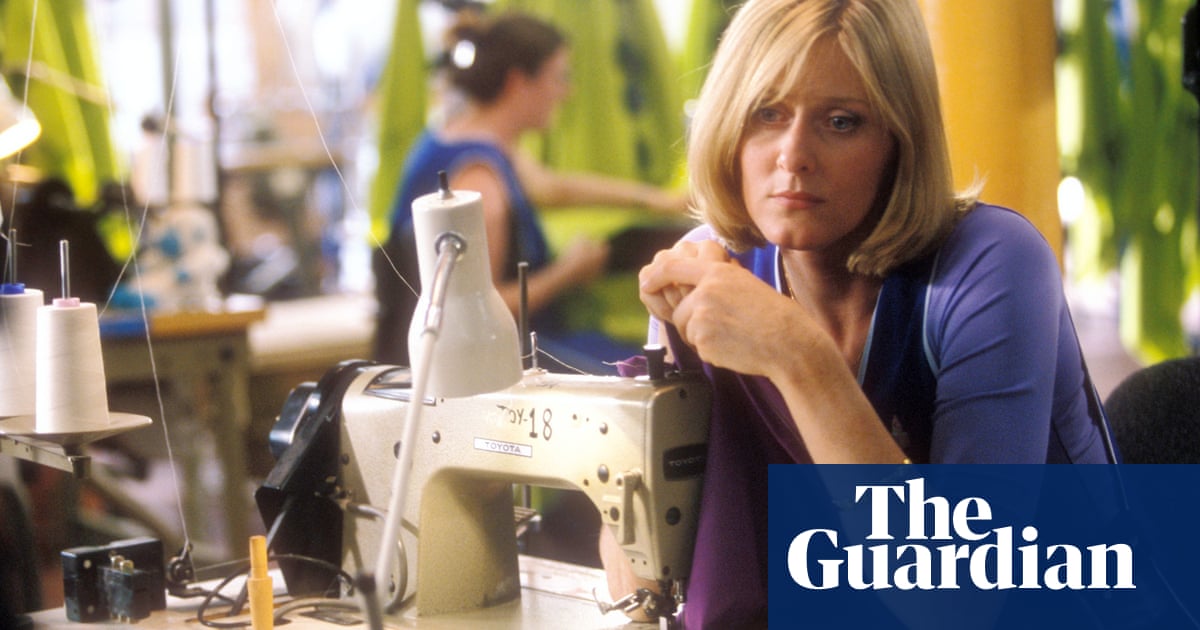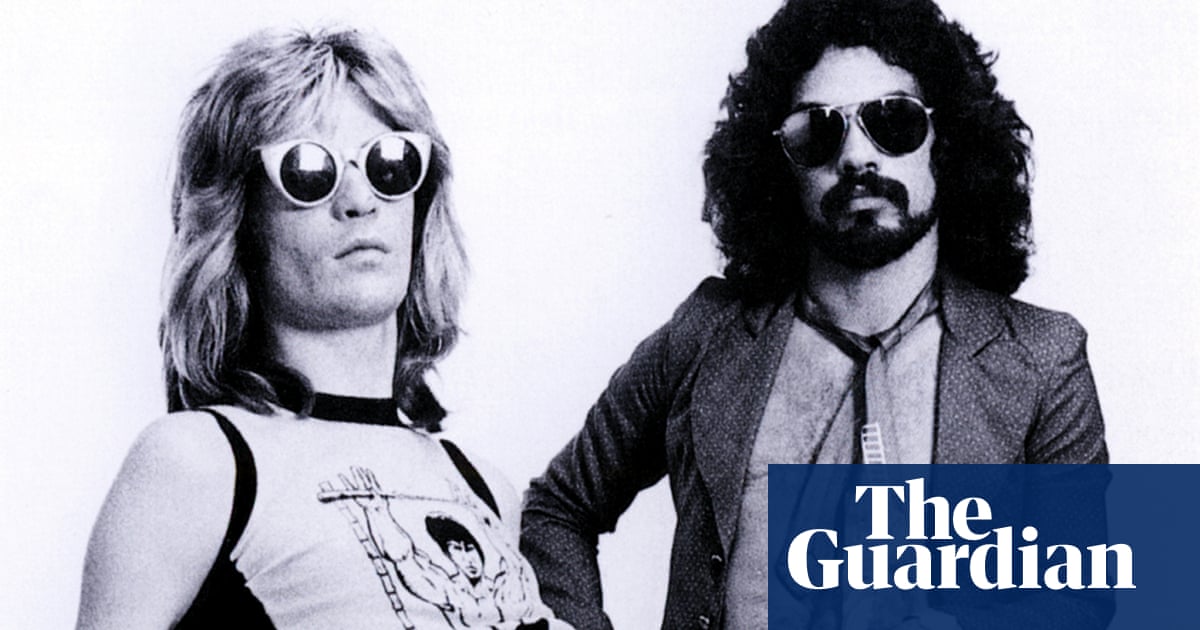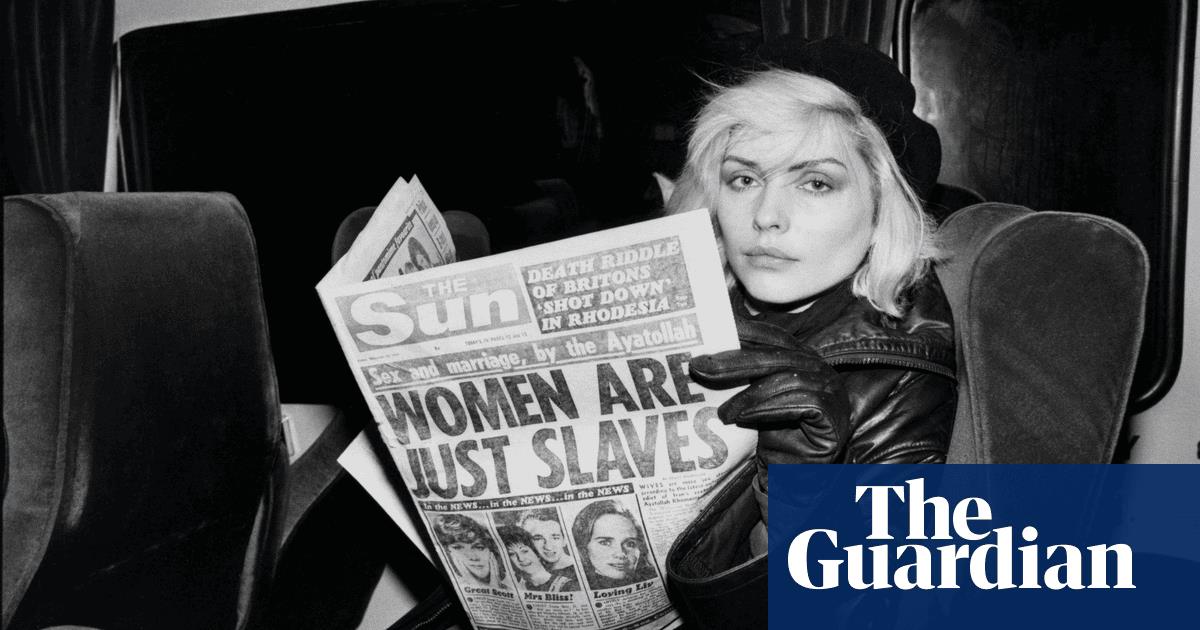
Paul Abbott, creator and writer
My mantra for Clocking Off was “extraordinary moments in ordinary people’s lives”, and seeing how realistic I could make that. It was partly inspired by Dekalog, the Krzysztof Kieślowski TV miniseries, pretentiously. I used to work in a factory and you’d find out secrets about people that were just incredible, so it was also inspired by those memories.
Initially, it was just called Factory – it couldn’t have been more socialist – and the BBC hated the name. They thought it would put people off. Peter Salmon, who was head of BBC One, came up with Clocking Off. To me it sounded like a cop-out, but it absolutely worked because it’s basically: how well do you know the person working next to you?
If you had to write a Rovers scene in Coronation Street, your heart sank. There’d be about 20 people in there and you had to find them all a line
I’d written serials before, so it was a breath of fresh air to be able to kick off a brand new play with the same actors every time and make the stories as singular as I could. The word “anthology” was never used – the BBC commissioners were averse to it because they thought it would chase away a regular audience. Then I remember, at the press launch, Peter said: “I’m hearing a lot of journalists say it’s good the BBC are getting back to anthologies – it is an anthology, isn’t it?” It was very satisfying.
My previous experience was that, if you ever had to write a Rovers scene in Coronation Street for example, your heart sank, because there were normally about 20 people and you had to find a line for everybody. This was different, it was a higher concept. It was a liberation to be more naturalistic, and avoid the pitfalls that ordinarily plague you on a serial drama, like having to remind the audience of everything. It’s even worse now: “Oh, we need to mention that name again because they might forget it.” I bet they don’t! It used to eat into the story, and it’s not like I had assistant writers on Clocking Off. When we won the Bafta, I felt I really deserved it – it felt like appropriate recognition!
In practical terms, we were asking very big actors to suddenly slide into the background. People such as Christopher Eccleston, Sarah Lancashire, Ricky Tomlinson – all the biggest actors absolutely got it. Sarah was amazing. Lesley Sharp was absolutely stunning. Siobhan Finneran is a goddess, she can do anything. Nicola Shindler was such an amazing executive. I was ever so proud of it and I still am.
Jack Deam, played Kev Leach in all four series
Clocking Off went out in 2000 and, with it being the millennium, it felt like a whole new start. At that time in Manchester, there was a real buzz around things being made – it was a golden time for drama. There was little email back then, so a courier brought the scripts round to the house. Six turned up and it was late at night, so I thought: “I’ll read a couple now and the rest tomorrow.” But then I sat at the table and just went through them all. I remember thinking: “This is a big deal.” I’d not read anything like it. The BBC weren’t producing many standalone dramas, so this was the renaissance of the anthology series. And I felt as if I knew all those people on the page. The exterior of the factory we used was in Oldham – where I’m from – so it just all made sense.
I knew a few of the actors already: Siobhan and Sarah were from Oldham, Tony Mooney I knew through a mutual friend. Everyone was on set all the time and that camaraderie really comes across on screen. We became a big sociable group of friends. It changes when you get older, but we’re pretty much all still in touch.
Paul was constantly writing so you didn’t see a lot of him. He was on fire then – not just with Clocking Off. State of Play also came out around that time. It was electric every time he came in, he had an energy – that genius gene. Half the time, he wasn’t listening because you could see he was creating stuff in his head.
Clocking Off attracted big players and I learned so much from watching other people. Pam Ferris came in and completely changed a scene from what it was on the page – changed the nuance, changed the subtext, made it into something so much more colourful and interesting. I’d not been to drama school so it made me step back and think: “I’ve got so much more to learn.”
I was a bit apprehensive about playing Kev, because I knew a lot of actors that were more suited to him. I was an introvert, he was very much an extrovert. But sometimes when you’re playing characters it changes you and Kev had an effect on me. He made me a bit bolder – it was what I wanted and needed.











